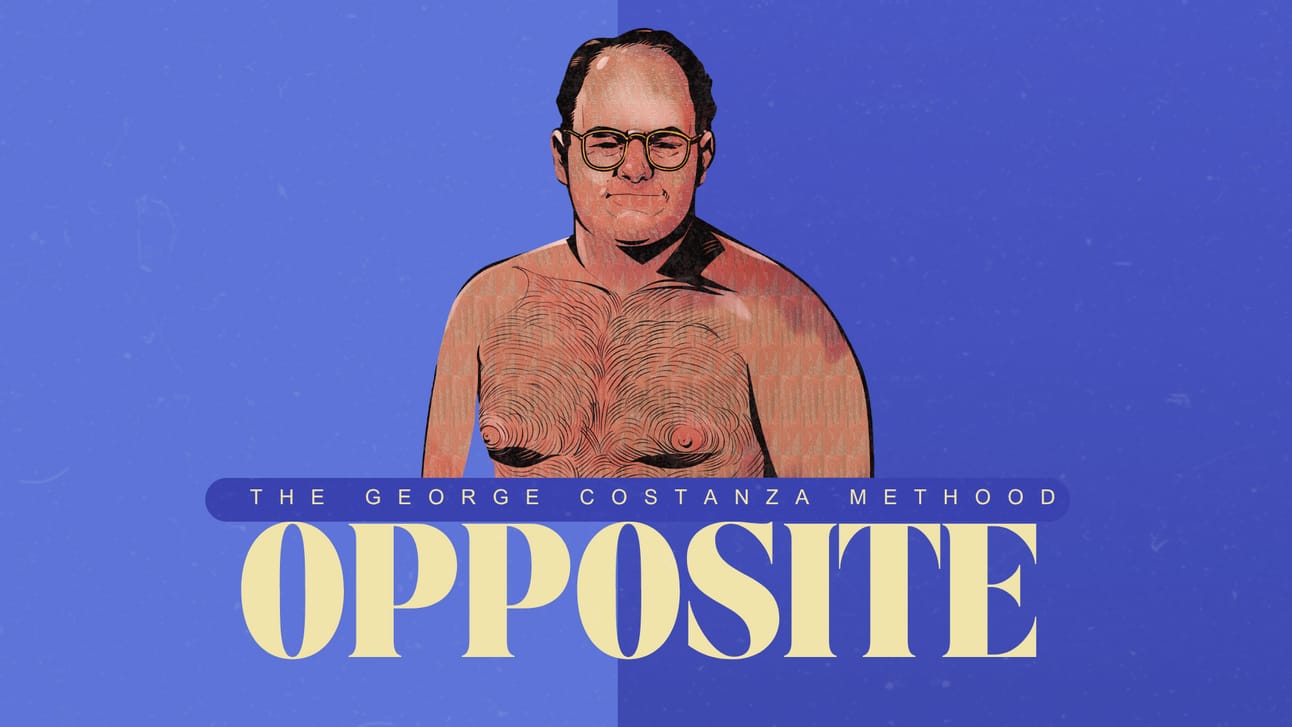
Listen now on Spotify and Apple Podcasts
👋 Hey dumdums,
The Dumbify podcast just launched!
The first wave of listeners is already chiming in. Add your voice, tap ⭐️⭐️⭐️⭐️⭐️ on Spotify or Apple, drop a quick line, and hit follow. Let’s show the world how smart dumb thinking can be.
Alright. Let’s get into today’s big dumb brain nugget:
Strategic spacing out makes you smarter.
Not the glazed-over, lights-are-on-but-nobody’s-home kind. The kind where your brain roams through rich, complex spaces — real or imagined — and builds maps while you play.
It’s backed by science.

Why Meandering Beats Memorizing
Before you're allowed to drive a London taxi, you must first conquer The Knowledge — a sprawling, sadistic memory quest involving 25,000 streets, every pub, statue, and possibly haunted kebab stand within six miles of Charing Cross. GPS? Please. You’re not allowed to even think about satellites.
The training plan?
Get on a wobbly moped and just… wander.
Loop Piccadilly. Get lost in Soho. Take wrong turns until your brain cries uncle and starts building its own internal Google Maps.
University College London tracked 79 of these poor, brave souls for four years. Only 39 made it to the finish line. But those who passed? They didn’t just earn a license. They grew new brain meat.
Seriously. MRI scans showed their posterior hippocampus (the brain’s onboard navigation system) plumped up like a raisin in hot gin. Grey matter that didn’t exist before was suddenly there, flexing.
The folks who didn’t pass? Nada. No growth. No license. Just four years of scooter fumes.
Neuroscientist Eleanor Maguire called it “watching the adult brain remodel itself in real time,” which is science-speak for “holy crap, the brain can still do cool tricks after 30.”
Now, I know what you’re thinking:
“Sure, anyone who memorizes 25,000 street names is gonna grow some extra neurons.”
But here’s the thing…
Everybody in the study did the classroom work. Only the ones who roamed purposeless, aimless, and gloriously inefficient got the brain gains.
The ones who studied hard but stayed put? Flatlined.
Oh, and the people who used GPS? Their brains got smaller.
Bottom line: It’s the wandering, not the cramming, that rewires your brain’s internal map room. Or to put it another way: getting lost might be the smartest thing you do all day.
If wandering real streets builds brain mass, what happens when the streets are pixelated, the stakes are nonexistent, and your travel companion is a mushroom-powered Italian?

Your brain gets younger
UC-Irvine researchers gave students Super Mario 3D World and told them:
“Your only mission is to wander around Super Mario 3D World. No enemies. No timer. Just... explore. For 30 minutes a day. For ten days.”
Meanwhile, a different group gets Angry Birds — a 2D thumb-flicking tantrum of a game.
And a third group is told to sit quietly and “think of England.” 🤣
Two weeks later: The results were wild.
The Super Mario drifter’s brains got bigger! — a 12% bump in hippocampal memory.
That’s enough to reverse two decades of age-related mental slippage.
Basically, they played Mario and got younger brains.
So what about the Angry Bird-flingers and the England-thinkers?
Flat. Nothing. Crickets.
“It’s the spatial buffet, not the boss fights,” said co-author Craig Stark, who now owes Super Mario a fruit basket.
Turns out, rich 3D worlds trick your brain into building mental maps even when you’re just goofing around. That gentle, goal-free wandering is exactly the kind of workout your hippocampus secretly craves.
So next time someone says you’re wasting time in a video game, just squint, nod, and tell them you’re doing neuroplasticity.

Pronounced: (KOD-ee-wom-pul)
Dumb Word of the Day: Coddiwomple
(verb.) To travel with purpose… toward absolutely no idea where.
Coddiwomple is what happens when your brain grabs the keys, says “trust me,” and speeds off wearing pajama pants and sunglasses it found in the glove box.
You think you're just out for coffee. Next thing you know, you’re in a Lithuanian folk museum gift shop buying a tiny accordion and the answer to your marketing problem.
Neuroscientists like to call this latent learning — a sterile phrase that makes it sound like your brain is secretly attending summer school in the back of your skull.
But you know better.
It’s just your cortex taking itself on a scenic detour and somehow returning with insight, a weird sunburn, and a new favorite flavor of gum.
Use it in a sentence:
“We coddiwompled through the hills and found a goat, a man named Jerry who sells thunder in jars, and something that might be love. Or gout. Still unclear.”
The Mindless Coddiwomple Challenge
Write down three low-stakes places your brain can safely wander without supervision.
Example zones:
• “Side street I’ve never walked”
• “Thrift-store aisle that smells like 1997”
• “Sandbox level in a video game where nothing matters and you can throw chickens”
Toss these into a mug. Or let WheelofNames spin them like the fate-god it is.
Now drift.
Whatever the wheel spits out, give it as much time as you’ve got. No goals, no guilt.
Then pounce.
Afterwards, go straight into something you've been avoiding.
Notice what happens. Are you… weirdly smarter?
Try a different detour tomorrow. See which wander-style turns your brain into a back-alley genius.
🎤 YOUR TURN
So... where did your most unhinged coddiwomple take you?
Hit reply and spill it. I’ll toss every response into my very official, moderately haunted Hat of Chance™, and one lucky drifter will receive a souvenir jar of Plot Twist Preserves. (Flavor unknown. Possibly legal. Definitely weird.)
Until next time. Your devoted detourist,
David 🛵💭
Dumbify: Dumb Ideas, Delivered Weekly (You’re Welcome).





